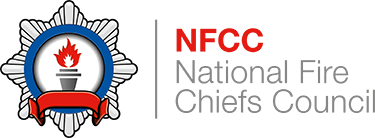What is social value?
Social value can be defined as increasing the social, economic and environmental wellbeing of the people we serve. When the concept of social value is included within procurement activity, it is important to consider more than just the cost and direct benefits of a contract, but what value a contract might add to our communities. Social Value aims to move beyond making decisions based on financial cost or price alone. Instead, it advocates seeking ‘value for money’ in its widest sense by considering potential social benefits (involving people, culture and interactions), economic benefits (such as money flow and financial resources) and environmental benefits (involving the place in which people live, the planet and use of resources.
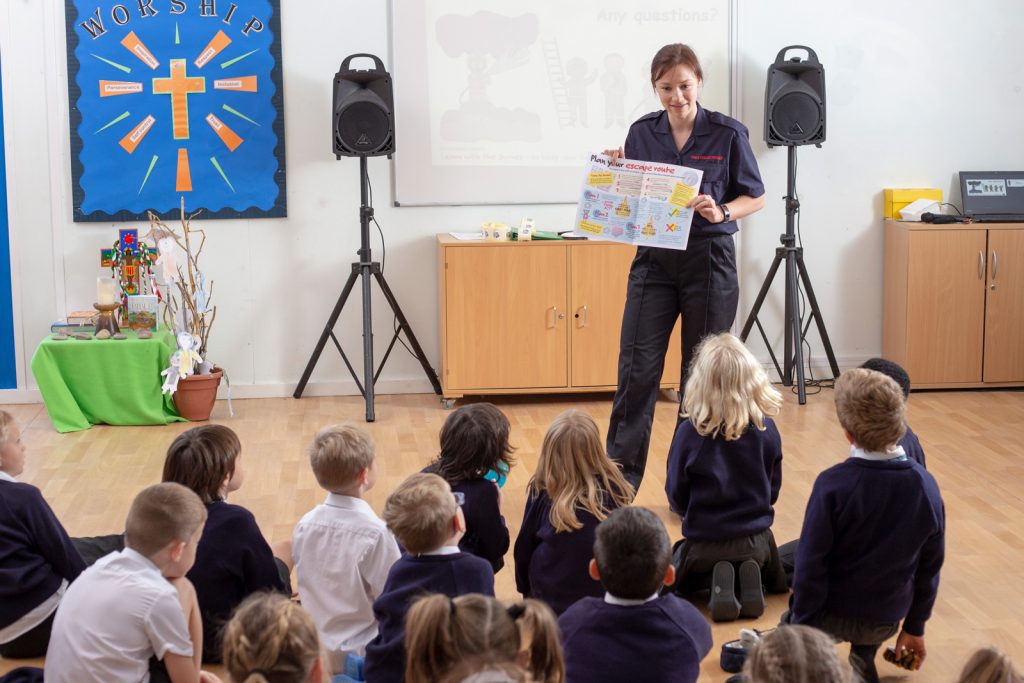
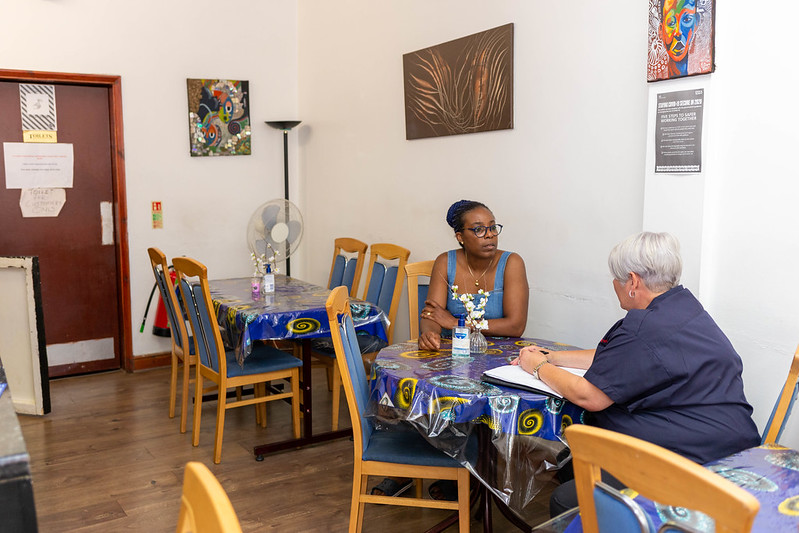
In summary, this may be in terms of;
- Promoting local skills and employment for all;
- Supporting the growth of responsible local business;
- Fostering healthier, safer and more resilient communities;
- Providing cleaner and greener spaces by promoting sustainable procurement and safeguarding the planet,
- Promoting new ideas and social innovation.
Key Social Value Objectives
A new Social Value Model was launched from 1 January 2021 by the Government’s Commercial Function that focusses on the following five Social Value priorities for procurement, also known as ‘themes’;
- Supporting COVID-19 recovery;
- Tackling economic inequality;
- Fighting climate change;
- Equal Opportunity;
- Wellbeing;
These priorities support the Government’s commitments to meeting the United Nations Sustainable Development Goals 2015 to end poverty and protect the planet, support compliance to The Equality’s Act 2010 and the elimination of Modern Slavery, creating new jobs, promoting skills, and growing and diversifying supply chain opportunities in line with its Industrial and Civil Society Strategies.
| Theme Number | Theme Description | 80 Policy Outcomes |
|---|---|---|
| Theme 1 | Supporting Covid 19 Recovery | 1. Help local communities to manage & recover from the impact of Covid 19. |
| Theme 2 | Tackling Economic Inequality | 2. Create new businesses, new jobs and new skills. |
| Theme 2 | Tackling Economic Inequality | 3. Increase supply chain resilience and capacity. |
| Theme 3 | Fighting Climate Change | 4. Effective stewardship of the environment. |
| Theme 4 | Equal Opportunity including the delivery of the Authority’s Equality, Diversity and Inclusion commitments | 5. Reduce disability employment gap. |
| Theme 4 | Equal Opportunity including the delivery of the Authority’s Equality, Diversity and Inclusion commitments | 6. Tackle workforce inequality. Additionally supporting the Authority’s Equality, Diversity and Inclusion commitments as detailed in the Authority’s Equality, Diversity and Inclusion Strategy 2021-2025 and Modern Slavery Policy. |
| Theme 5 | Wellbeing | 7. Improve health & wellbeing. |
| Theme 5 | Wellbeing | 8. Improve community cohesion. |
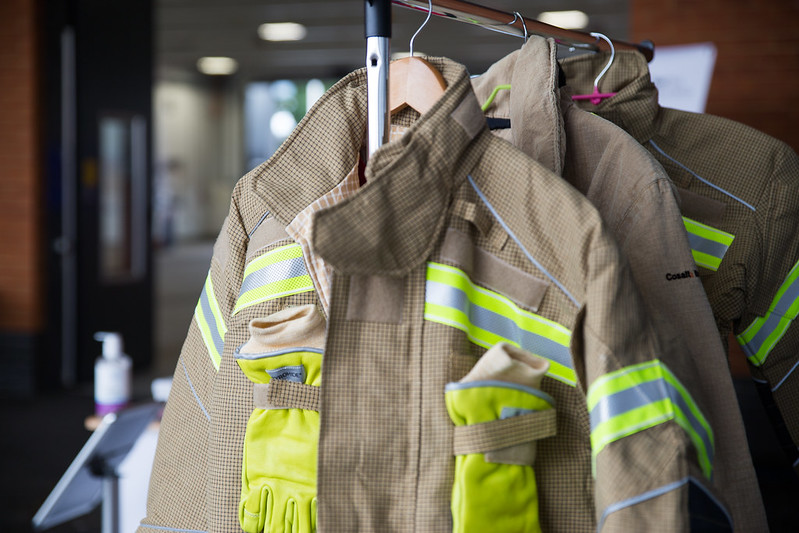
Modern Slavery
It is our social and moral responsibility to understand the impacts of modern slavery not only globally but also the impact across the sector through our global supply chains. It is imperative that we take the appropriate steps to work towards eradicating the risks of modern slavery and human trafficking.
Modern slavery is a crime and a violation of fundamental human rights. It takes various forms, such as slavery, servitude, forced and compulsory labour and human trafficking, all of which have in common the deprivation of a person’s liberty by another in order to exploit them for personal or commercial gain. To tackle these crimes, the Modern Slavery Act 2015 was introduced.
The following definitions are encompassed within the term ‘modern slavery’ for the purposes of the Modern Slavery Act 2015:
- ‘slavery’ is where ownership is exercised over a person
- ‘servitude’ involves the obligation to provide services imposed by coercion
- ‘forced or compulsory labour’ involves work or service extracted from any person under the menace of a penalty and for which the person has not offered himself voluntarily
- ‘human trafficking’ concerns arranging or facilitating the travel of another with a view to exploiting them.

In early 2021 the National Procurement Hub wrote to all services to confirm that the Modern Slavery Act 2015 was amended to include obligations for all of the public sector to report on its measures to monitor and eradicate risks of modern slavery and human trafficking.
The basis of any reporting should link to your organisation’s Modern Slavery Policy. If you do not currently have a policy in place, then it is advisable that you do so as a priority to ensure that you can evidence that you the support Government’s move to eradicating such treatment of so many people affected by these crimes and also be able to evidence how you are performing against the commitments detailed within your policy.
To assist in the creation of your services policy, please download the Modern Slavery policy Kent Fire & Rescue are working towards by way of an example.
Modern Slavery in public sector supply chain – e-learning course
As part of Government’s efforts to tackling modern slavery in global supply chains, the Home Office’s Modern Slavery Unit and Joint Security and Resilience Centre have produced an e-learning course for public sector commercial staff (please see link below) on the practical steps they can take throughout the commercial lifecycle to identify and mitigate modern slavery risks.
The e-learning course should give users a strong set of skills to:
- Recognise how modern slavery can manifest in supply chains.
- Spot modern slavery risks in procurement and critically interrogate the assurances suppliers provide (such as social audits).
- Drive improvements in modern slavery due diligence to create better outcomes for workers.
The access to this course is funded by the Government Commercial College (GCC), and it is at nil cost to learners. The e-learning is available to public sector staff who have access to the GCC website.
The e-learning guides users through a fictional personal protective equipment (PPE) procurement as a case study but the learning is applicable to staff working on other types of procurement.
Log in to site to access the course:
So, what do we really mean by sustainability?
In a nutshell, sustainability is all about maintaining or supporting the continuation of natural or physical resources, looking at the impact of any actions to use resources on people, ecosystems and the wider economy. As a Sector, we consume over £500m of goods and services each year, requiring an incredible amount of resources.
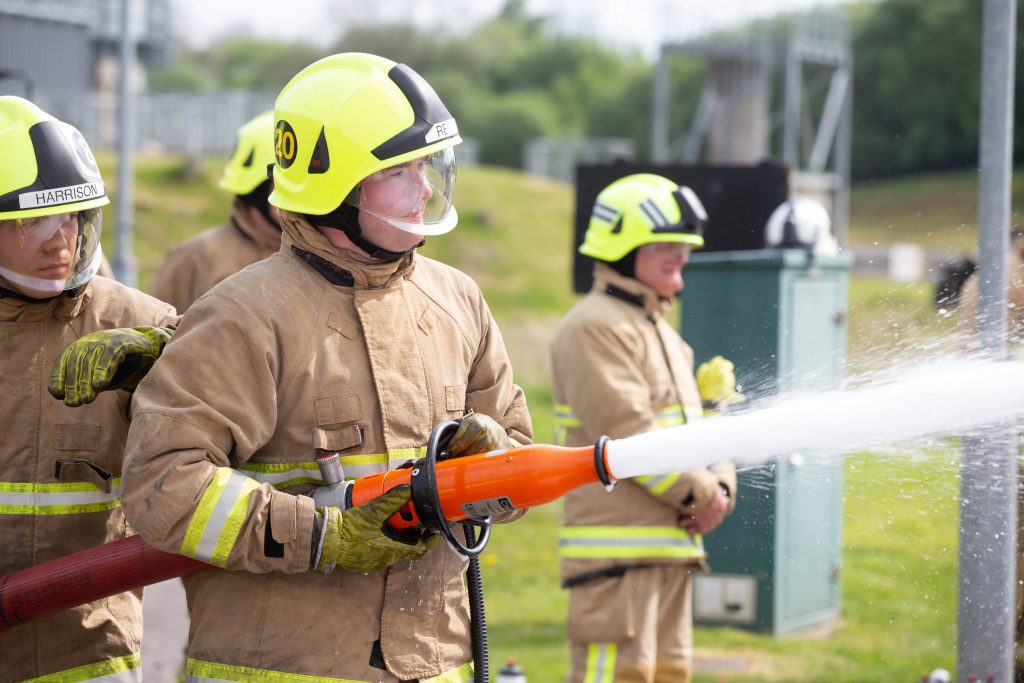
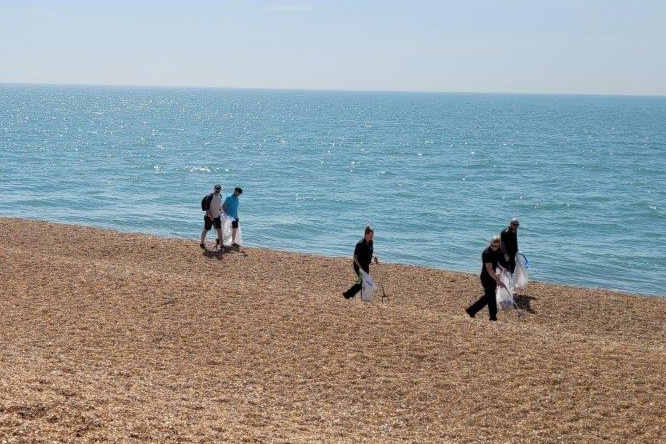
Our Pledge
We recognise that we can’t change everything overnight, but we can ensure that we start to make positive change by embedding sustainability in everything we do through for example, energy efficiency measures, supply from renewable sources and reducing, reusing and recycling wherever possible.
Working with Fire and Rescue Services, the NFCC Research and Development Hub, Blue Light Commercial and Industry representatives, we aim to deliver innovative products and services that will help our Sector and supply chains make a positive impact on society and the environment.
